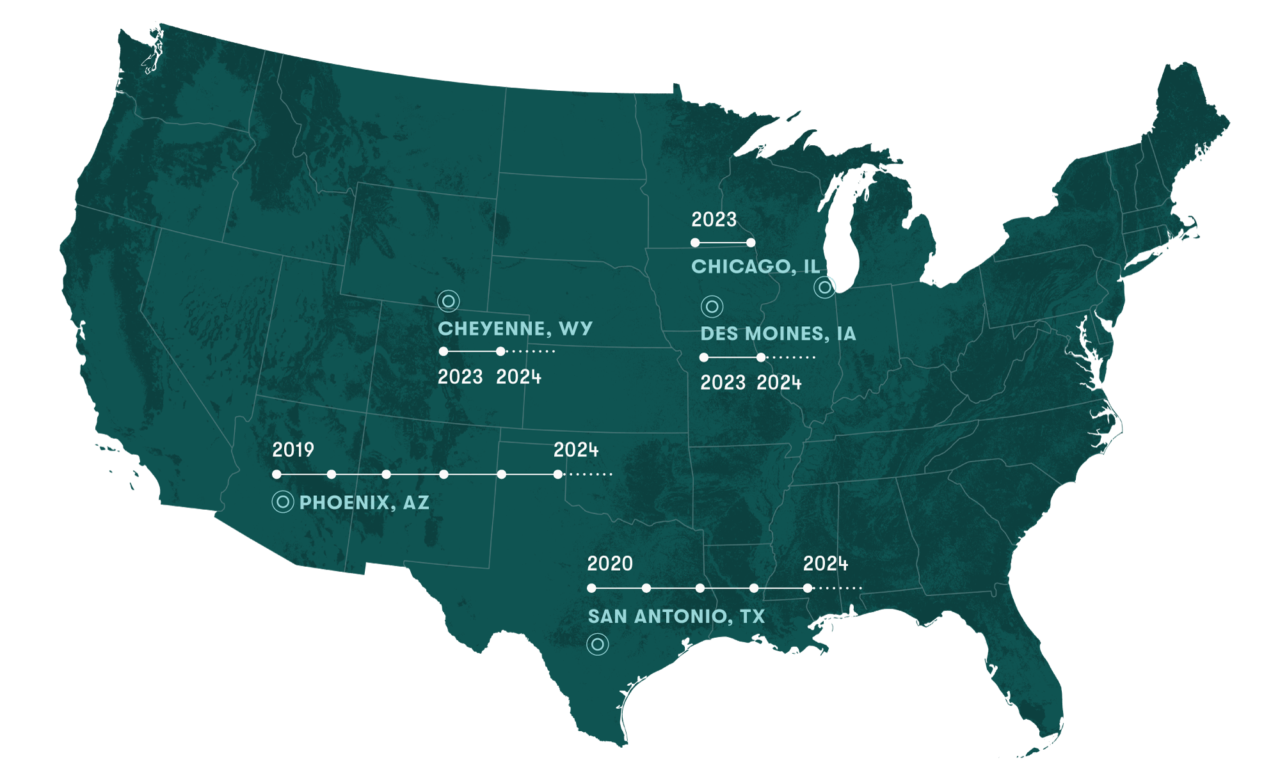
Photo Credit: Julia Twitchell / American Forests
Microsoft is helping American Forests implement a holistic vision for creating healthy and resilient urban forests, through the Tree Equity partnership. The projects American Forests and Microsoft are collaborating on span the entire model of urban forestry, from partnership building and climate vulnerability assessments to job training and park maintenance. Collaborating closely with community members and local organizations, each project is customized to meet the needs of the areas they are implemented in.
Phoenix
In cities across the United States, trees are often sparse in low-income neighborhoods and some neighborhoods of color. Low tree canopy has many consequences, but one of the most dangerous is an inability to cool a neighborhood. That’s particularly true in Phoenix, one of America’s hottest cities where many neighborhoods are 10 degrees hotter than other parts of Maricopa County, according to American Forests’ Tree Equity Score.
American Forests, with Microsoft’s support, developed and expanded several tools to guide tree planting in the area. Microsoft also funded a study to assess climate vulnerability throughout the metropolitan area to use in determining the right climate-resilient species to plant. In addition to the tools, the on-the-ground impact of this partnership is readily apparent as Microsoft employee volunteers in Phoenix come together annually to plant trees at local elementary schools most affected by tree canopy inequity.
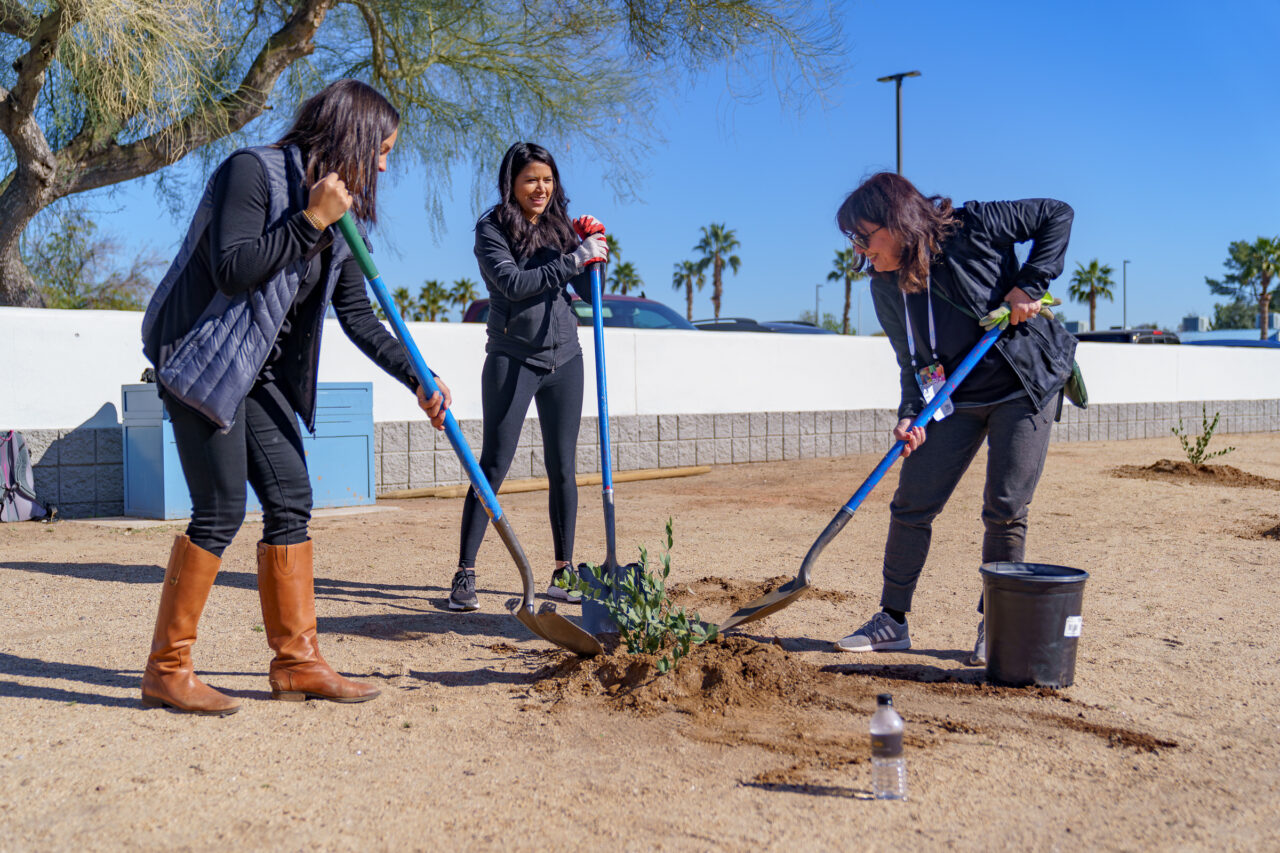
Photo Credit: Sarah Schmid / American Forests
San Antonio
The city of San Antonio is facing two critical issues: a dwindling tree canopy and a lack of well-trained people to take care of the remaining trees. American Forests and Microsoft have joined forces with community organizations to try to tackle these shortages, partnering with Bexar Branches Alliance and American Youthworks to plant trees in school districts with low canopy coverage and support career training for young adults to become future professionals in environmental resilience. Through this project, over 500 trees will be planted, spanning 5 elementary schools and expanding Environmental Science Curriculums for the students participating in each planting event.
Many parts of San Antonio are also designated food deserts, meaning that these areas don’t have local access to affordable, good-quality fresh food. American Forests, with funding from Microsoft, is collaborating with Garcia Street Urban Farm, one of the largest urban farms in the city, to explore how urban agricultural spaces are an asset to local communities. Garcia Street Urban Farm will provide affordable local produce, grow climate resilient species, educate community members on food systems and ecosystem services and explore career pathways in environmental and social issues. This collaboration aims to create a model for innovative urban agriculture to provide resources and support for individuals or institutions looking to launch similar projects.
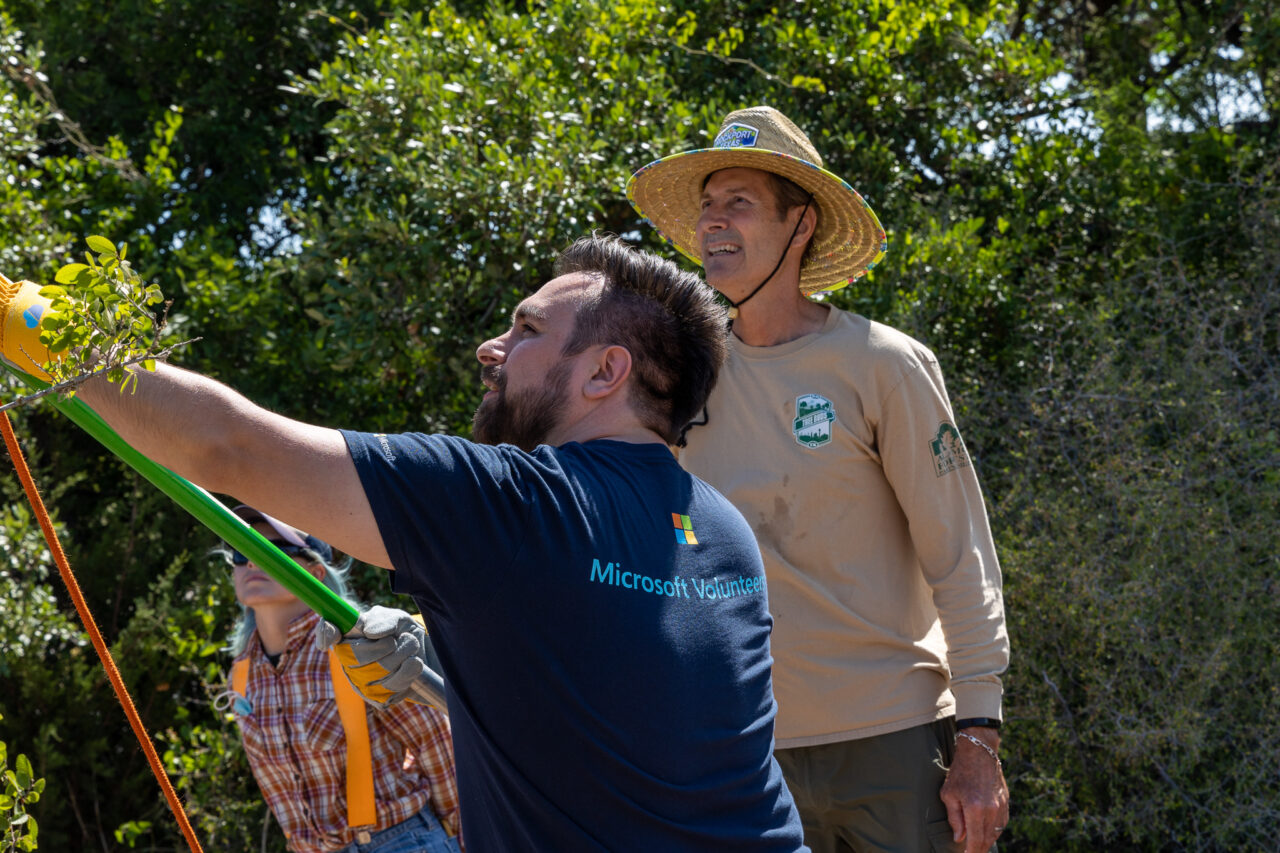
Photo Credit: Hannah Gregory / American Forests
Cheyenne
American Forests and Microsoft understand the value of partnering with the local organizations that know their community best. That’s why we’ve joined Rooted in Cheyenne with a shared goal to reestablish a long-term tree planting program to support a more diverse and resilient urban canopy for more livable neighborhoods. In Cheyenne, Microsoft volunteers, residents and businesses are bringing Tree Equity to their neighborhoods.
Rooted in Cheyenne hosted a tree care workshop featuring presentations geared to homeowners and green industry professionals with guidance, tips and resources to successfully plant and support trees. Equipped with the knowledge to successfully turn newly planted trees into an established tree canopy, residents of Holliday Park, a neighborhood with a low Tree Equity Score, were invited to receive up to two trees to plant on their property.
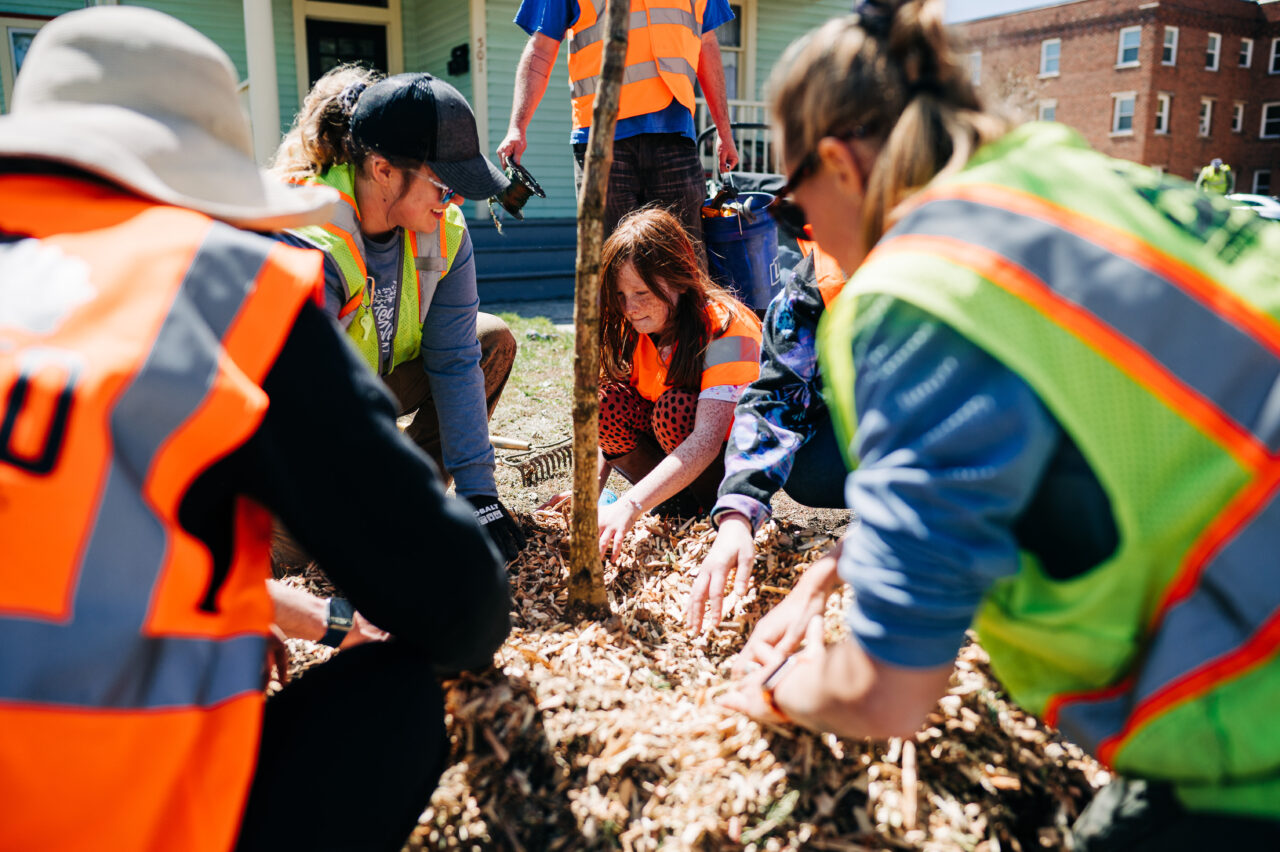
Photo Credit: Liz Putnum Photography / Liz Putnam
Chicago
Ensuring a healthy and diverse tree canopy means planting trees and maintaining those already established. In Chicago, American Forests and Microsoft have teamed up with Chicago Region Trees Initiative for an opportunity to do both. Here, volunteers are working to plant trees and advance Tree Equity in their community. The partnership also allows for critical maintenance, such as oak and pine disease treatments, to be implemented in the region’s parks.
Des Moines
In Iowa, high rates of unemployment are disproportionately affecting teens of color and teens from under-resourced communities. Many of these young people are living in communities with a low Tree Equity Score. American Forests and Microsoft view achieving Tree Equity as more than the distribution of tree canopy cover. It also encompasses equitable access to knowledge and development of green job skills. That’s why we are partnering with a local organization, Trees Forever, and their program, Growing Futures, to support bringing both trees and jobs to Des Moines, Iowa. This unique workforce development program employs teens from under-resourced communities to plant and care for trees across Des Moines.
Growing Futures, with Microsoft support, will be offering seasonal, paid employment to teens and planting over 100 trees in the communities around Des Moines. Through this program, teens in the area will have a direct role in bringing green infrastructure to their communities while gaining work experience.
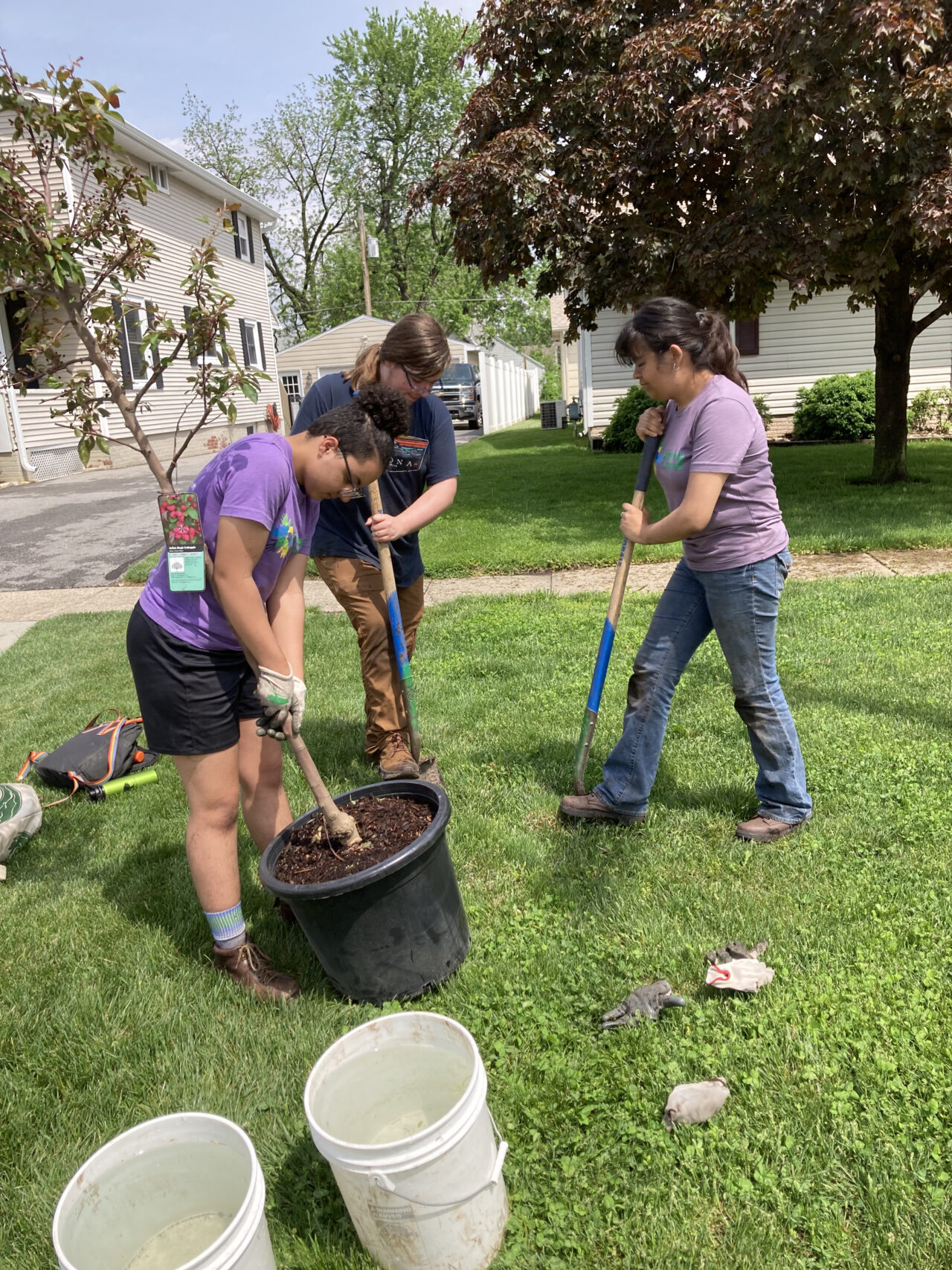
Photo Credit: Larry Nelson